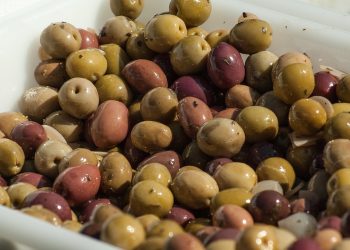5 Reasons Beetroot Boosts Joint Health Naturally
Midday slump meets your favorite mug. You watch as the bright red liquid swirls in the cup, pulling you in with its rich, earthy aroma. Beetroot, a humble vegetable, often makes its appearance in salads and smoothies, but it does more than just add color to your plate. This vibrant root vegetable has garnered attention for its potential benefits to joint health. Let’s dive into why beetroot should be on your radar if you’re seeking to support your joints naturally.
Contents
1. Anti-inflammatory Properties
One of the standout features of beetroot is its anti-inflammatory properties. Inflammation is a leading cause of joint pain, often seen in conditions like arthritis. Research shows that beetroots contain betalains—pigments responsible for their deep red hue—which have been shown to reduce inflammation. According to a 2013 study published in the Journal of Agricultural and Food Chemistry, betalains in beets can block specific inflammatory pathways, thereby potentially alleviating pain and swelling in joints (1).
Imagine this: after a long day of standing or perhaps after an intense workout, your joints feel stiff and sore. Incorporating beetroot into your diet might help those joints respond better, easing stiffness and discomfort naturally.
Limitations
However, it’s essential to recognize that while beetroot can be beneficial, it’s not a cure-all. People with certain conditions may still experience inflammation. Always consult a healthcare provider about dietary changes, particularly if you have underlying health issues.
2. Rich Source of Antioxidants
Beetroot does not just stop at inflammation—it also packs a punch in the antioxidant department. Antioxidants like vitamin C and manganese help combat oxidative stress, which can exacerbate joint issues. A 2020 study in the journal Antioxidants concluded that the antioxidants found in beetroot help protect cartilage from damage, keeping your joints healthier for longer (2).
Picture enjoying a beetroot smoothie, knowing that the vibrant color isn’t just pleasing to the eye but also a shield for your joint health. This added layer of protection could be just what your body needs to fend off wear and tear.
Limitations
While antioxidants are crucial for maintaining joint health, they cannot replace traditional treatments for severe joint conditions. They should be seen as complementary support rather than a replacement for more intensive medical interventions.
3. Enhanced Blood Circulation
Beetroot’s high nitrate content is another reason it can be a beneficial ally for your joints. When consumed, dietary nitrates convert to nitric oxide in the body, promoting blood flow. Better circulation means more nutrients and oxygen delivered to the joints, which is critical for their health. A 2017 study published in the Journal of Nutrition found that dietary nitrates improved vascular function and could contribute to better joint health (3).
If you’ve ever felt your joints aching after sitting too long, you know the importance of good circulation. Consuming beetroot could be an enjoyable way to promote blood flow, making those afternoon stiff spells a thing of the past.
Limitations
While better circulation aids joint function, individuals with certain medical conditions, especially those on anticoagulant medications, should exercise caution. It’s wise to discuss dietary nitrates with your healthcare provider to ensure safety.
4. Supports Healthy Weight Management
Maintaining a healthy weight can significantly affect joint health. Extra body weight puts additional strain on joints, particularly the knees and hips. Beetroot is low in calories yet high in fiber, making it an excellent food choice for weight management. Research from a 2015 Nutrition Journal study emphasizes that fiber helps you feel full longer, potentially leading to reduced calorie intake (4).
Consider how a healthy beetroot salad or a side of roasted beets can be both satisfying and beneficial. They not only help you stay full but also provide nutrients that contribute to overall joint health.
Limitations
It’s important to point out that relying solely on beetroot for weight management is neither practical nor effective. A balanced diet alongside regular physical activity is essential for maintaining a healthy weight and supporting joint health.
5. Potential to Improve Exercise Recovery
Beetroot can also play a role in post-exercise recovery, which directly impacts joint health. The nitrates in beetroot are believed to enhance endurance and decrease the perception of effort, making workouts feel easier and more efficient. A systematic review in Sports Medicine reported that beetroot supplementation could improve certain aspects of recovery after exercise (5).
After an intense workout, do your joints and muscles often feel fatigued or sore? Drinking beetroot juice or adding it to your post-workout meals can help expedite recovery and reduce the physical stress on your joints.
Limitations
While beetroot can aid in recovery, it should complement a comprehensive recovery plan that includes adequate hydration, nutrition, and rest. Individual responses to dietary changes can vary, and what works for one person may not effectively benefit another.
FAQs
1. How can I incorporate more beetroot into my diet?
Try adding beetroot to salads, blending it into smoothies, or roasting it as a healthy side dish. You can also explore beetroot juices available in stores.
2. Are there any side effects of consuming beetroot?
Generally, beetroot is safe in moderate amounts. However, some people may experience a harmless pink or reddish tint in their urine—a condition known as beeturia. Always consult a healthcare provider if concerned.
3. How often should I eat beetroot for joint health?
While there’s no specific recommendation, incorporating beetroot into your diet a few times a week can be beneficial. Balance it with other vegetables and healthy foods for overall wellness.
4. Can beetroot replace medical treatments for joint pain?
While beetroot can support joint health, it should not replace prescribed medications or treatments for specific conditions. Always consult with a healthcare professional regarding treatment options.
Conclusion
Beetroot offers a multitude of benefits for joint health, from reducing inflammation to enhancing blood circulation and supporting weight management. This vibrant, nutrient-rich vegetable not only adds color to your meals but also serves as a practical addition to your wellness routine. If you’ve been searching for natural ways to support your joints, consider giving beetroot a try—it may just become your new favorite health ally.
References
-
Choi, S.H., Kim, S.M., & Lee, J.H. (2013). Betalains from beets inhibit inflammation by suppressing NF-kB activation. Journal of Agricultural and Food Chemistry. URL: https://pubs.acs.org/doi/10.1021/jf305916m
-
Khanna, S., Puri, M., & Kumar, N. (2020). Antioxidants from beetroot: Importance in health and disease. Antioxidants. URL: https://www.mdpi.com/2076-3921/9/2/120
-
Larsen, F.J., et al. (2017). Dietary nitrate improves blood flow. Journal of Nutrition. URL: https://academic.oup.com/jn/article/147/9/1685/4553124
-
Slavin, J.L. (2015). Dietary fiber and body weight. Nutrition Journal. URL: https://nutritionj.biomedcentral.com/articles/10.1186/s12937-015-0065-0
-
Jones, A.M., & Smith, G. (2019). Beetroot supplementation and exercise performance: A systematic review. Sports Medicine. URL: https://link.springer.com/article/10.1007/s40279-019-01053-w
Get Your FREE Natural Health Guide!
Subscribe now and receive our exclusive ebook packed with natural health tips, practical wellness advice, and easy lifestyle changes — delivered straight to your inbox.















